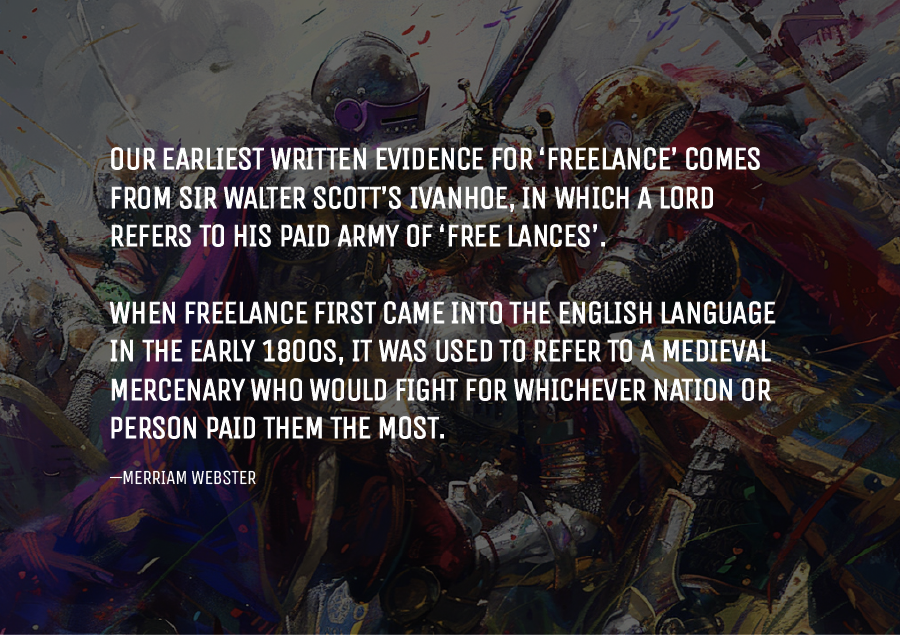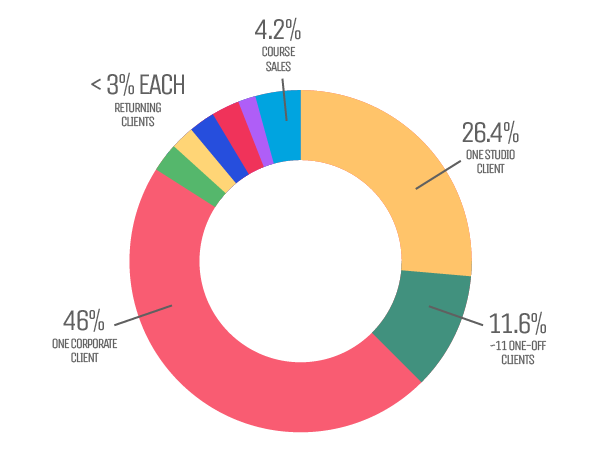What’s the point of freelancing in 2024?
Remote work isn't hard to find anymore
What’s the point of freelancing in 2024?
Remote work isn't hard to find anymore
May 27th, 2024
When you’re ready to quit, remember why you started. And then decide if it’s still worth continuing.
The #1 reason I started freelancing was to have location independence. In 2016, that was hard to find.
- But 2020 changed that. And even while many companies are now trying to claw back their COVID-era policies, it’s still reasonably easy to find a full-time remote position in motion design.

List 1: The benefits of full-time
- PTO + Sick leave
- Maternity/Paternity leave
- Inclusion in company perks
- Work friends AFK* / office culture
- Company contributions to 401k, HSA
- Bonuses & other incentives, stock options
- Over-the-shoulder learning from peers/superiors
- No cost to you for equipment, software, plugins, etc.
- Having the office option, office amenities (gym, cafe, etc)
N.B. Is health insurance really a benefit? (USA)
- Even if a company covers 100% of your insurance (rare) it’s still coming out of your salary offer.
- Companies essentially get “bulk rates” on health insurance, so that discount gets passed on to the employee.
- But my experience has been that freelancing allows me to make more than enough money to compensate for the difference, and then some.
List 2: The benefits (and caveats) of freelancing
- Location independence
- Unless the studio wants you on-site
- Make your own schedule
- But it has to fit into your client’s schedule
- Say no to work you don’t like
- Unless you need the money
- Set your own rates
- Enjoy the game of negotiating money
- Flexibility to structure your business any way you like
- Just make sure it supports your clients’ structure
- No ceiling on how much money you can make
- Assuming you can find the work and budgets and get it done
- Answer to no boss
- But risk never getting called back if you are inconsiderate
Freelancing puts the weight of each responsibility squarely on you. I had to ask myself if it was really worth it now that remote and hybrid work are commonplace.
Are you a freelancer, or just overemployed?
Most small businesses (<$40 million annual revenue) survive thanks to their regulars. I’m no different.
- In 2023 I made $309k. 46% was from 1 client.
- I was basically an employee for two different companies. Plus taking on more sporadic work from several other sources.
- And I’m willing to bet most studios break down similarly
- If freelancers are pseudo-employees, studios are treated like some kind of extracorporeal IT department.

Client POV:
- It’s more convenient for companies/agencies/studios to avoid bulky headcount by keeping a roster of regular freelancers.
- These gigs can be cut at any time without consequence
- Reliable freelancers are difficult to find, but so are reliable employees.
Freelance POV:
- Regular, reliable income is the foundation of stability and scale
- But you end up being treated as an employee, without the benefits
- Your gig could be cut at any moment, so you have to diversify your clients
The catch: That second highest number, the 26.4% client?
- That team was let go without notice and the gig cut in half earlier this year.
- At the top of the year, I lost a client (layoffs, changeover) who had accounted for 35% of my income in 2022.
- And who’s to say how long that 46% golden goose will last?
So, what’s the point of freelancing in 2024?
It’s tough out there.
- Inflation is high
- Budgets are stringent
- Motion work is rapidly commoditizing
- Video and motion are ubiquitous, therefore necessary but also less effective than it used to be for our clients
My thought bubble: Freelancing doesn’t always mean more freedom— unless money isn’t a priority.
But in the current climate of frequent mass-layoffs, having diverse sources of income (freelancing) is a much safer bet in the long term.
